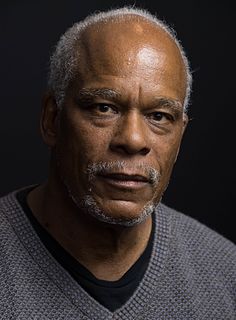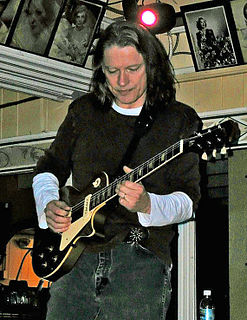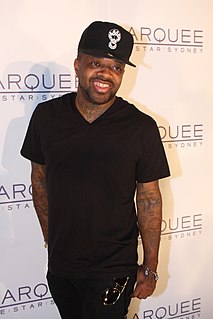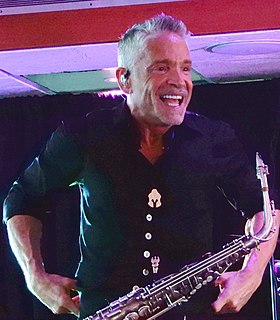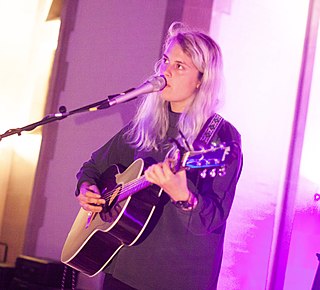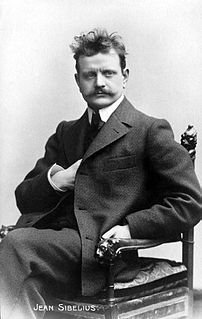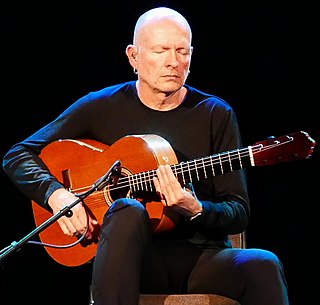A Quote by Itzhak Perlman
Same thing with harmonies. If you hear something that harmonically is interesting, express it. So that's what I'm saying about talking the music rather than just playing through.
Related Quotes
I don't find a lot of people actually saying things through music any longer. They are not trying to say anything with their music, they just want to make money with it. I think it's important to actually say something real, something meaningful, rather than just write some trash and try to sell it.
The script [of Regression] wasn't the draw for me. It was largely Alejandro [Amenabar] and his way of talking. To hear him talking about the script was way more interesting than the script. He wrote it, and so, English is his second language. It's an interesting thing. I've had that before. I was directed by Alfonso Cuarón before, too. It's always interesting when you're being directed by somebody like that. So much of directing is about communication, and finding the right words, and what it means, and how to convey certain emotions and ideas.
The thing I'm going through is probably like the same thing that Little Richard and all these other artists go through, that I hear about them, saying, 'Oh damn, you ain't gonna give me nothing till I die,' ... I feel like I'm one of those type of great people that just going to have to wait till it's all over with for people to really sit around and talk about it.
I think whatever you believe in affects whatever you express, whatever you create. It shapes your morality in some way. But I don't think that's something that you have to shove down people's throats. I'd rather keep it in the background, and I'd rather people came to the music in an unprejudiced way. I'm glad, in a sense, that most people don't know about me, what I do, much. I'd rather they hear the music, and then say, "I wonder what kind of person created this."
My first album was mainly dealing with street issues, and it was 'coded': it was called 'Reasonable Doubt.' So the things I was talking about... I was talking about in slang, and it was something that people in the music business was not really privy to. They didn't understand totally what I was saying or what I was talking about.
I'd probably end up doing the same thing over and over. We're creatures of habit. We know what we know. With collaboration...and I'm not just talking about music, I'm talking about in life - if you're a good listener and you have your ears open, and to be a good collaborator you have to be able to listen, you can learn something from somebody else.
Climate change is often the first thing I think about it in the morning, and the last thing I think about before I go to bed. It is not something that escapes that my mind, so inevitably, I had to kind of express that existential terror through art and music. My hope is to channel that confusion and energy into something good.
The music I'm playing now is the music I always imagined myself playing when I was a kid. It's been nice to use my instrument a bit more - play the guitar in a more fun way with riffs and stuff like that - rather than just propping up a whole song with a guitar and my vocals. There's so much more energy in the crowd as well; they've been bouncing around and having fun, and it's nice to feel like you're a part of something in a room rather than just performing for a crowd.
I can't judge the characters I play, because it's for the audience to do. What I can try to do is to understand and embody what were they going through? How did they make the decisions they made? That to me is a more interesting way to approach something, rather than saying this person is a villain and that person is this and - because it's not very interesting to play that anyway.
Flamenco is Arabic music and rhythms filtered through centuries of gypsies making music. The gypsies themselves came originally from India. And then there is the Caribbean influences... This whole idea that there is any such thing in music that "purity" is bunk, it just doesn't exist. I love that I am playing these rhythms to people. And the next time they hear something that's maybe a little more exotic, I have created a little bridge, and they are going, "Oh, this actually sounds really cool. It reminds me a little bit of that, but it's something different."
The thing I've been talking about with daughter is the idea of - and I'm talking about essentially in America - the possibility of, a lost generation. I've been listening to a lot of music - as a fan, as a critic, as somebody who likes to dance - but I hear, you know, within these songs and half the people I hear, these philosophies encoded and embedded in these songs.

